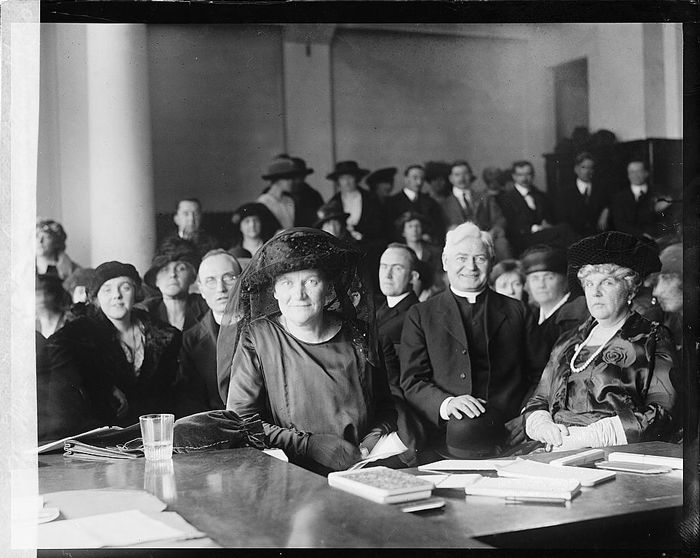Mary MacSwiney released from prison after 24 days on hunger strike
Dublin, 28 November 1922 – Mary MacSwiney was released from Mountjoy Prison and brought to a private nursing home attached to the Mater Hospital yesterday after completing 24 days on hunger strike. She was arrested in one of a series of raids in Dublin earlier this month in which a number of prominent anti-treaty figures were taken into custody. According to reports, she had decided beforehand that if she was arrested, she would immediately go on hunger strike.
MacSwiney’s release was unexpected, the order being given by Dr Henry Moore who had been attending to the prisoner, who was arrested on 4 November.
Mary MacSwiney’s sister, Annie MacSwiney, who has also been on hunger strike outside the prison gates since 17 November, was not informed of the release for around three hours.
A press representative who has since visited Annie at 62 Eccles Street found her in bed with a cup of tea. Looking understandably fatigued, Annie MacSwiney explained that after three or four days on hunger strike she lost all craving for food. ‘My attitude towards it became like my desire for a million pounds: I would like it, but was not particularly concerned about not having it. ’
Annie MacSwiney thanked her friends who cared for her outside the prison, among them Dr Kathleen Lynn who was in near constant attendance.
READ: Hunger Strike and Ireland, 1920 by William Murphy
The recent actions of the MacSwiney sisters have once again focussed attention on the morality or otherwise of the hunger strike as a political strategy. The Roman Catholic Bishop of Cork, Dr Daniel Cohalan denounced Mary MacSwiney’s hunger strike as an act of ‘self-murder’ and stated that for that reason the Sacraments could not be administered. The act of hunger striking to death was, the bishop explained, a grave violation of the fifth commandment – ‘Thou Shalt not Kill’ – and the Church could not give absolution without a promise of amendment. Dr Cohalan’s comments extended to an admonition of those men and women who were engaged in ‘irregular warfare’ against the government and involved the killing of national soldiers.
Mary MacSwiney expressed astonishment at the bishop’s remarks. In a letter to the press during her hunger strike, MacSwiney said that from the day of her entry to prison the morality of her chosen course had never been mentioned by any of the priests who came to visit her. ‘My hunger strike was never mentioned except in terms of sincere sympathy both with me and my brother. Therefore I was not at any time refused the Sacraments because of my hunger strike.’
Ms MacSwiney also challenged the bishop on the characterisation of her hunger strike as a mortal sin and an act of self-murder, reminding him that only two years before he had crossed from Cork to London to show sympathy with her brother for doing the exact same thing – her brother, Terence, died after 74 days on hunger strike in Brixton prison. Moreover, Dr Cohalan officiated at Terence’s obsequies and, in the company of three archbishops and four other bishops, walked in his funeral.
British Pathé newsreel footage Mary MacSwiney
[Editor's note: This is an article from Century Ireland, a fortnightly online newspaper, written from the perspective of a journalist 100 years ago, based on news reports of the time.]





















